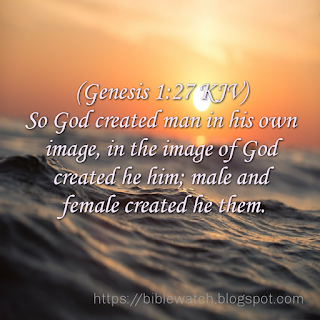IS GOD'S LOVE UNCONDITIONAL?
Want to start an interesting conversation among friends—or an endless argument among theologians? Ask this question: Is God’s love unconditional?
Many will say yes. God is a loving God; in fact, God is love. So he’s going to love you no matter what you do. Someone who believes in this “no strings attached” kind of divine love might say, “Deep down you’re okay; God accepts you as you are—warts and all. God smiles on you even if you don’t jump through any hoops, because you have intrinsic worth. You can relax, bask in his smile, and let the basically good, real you emerge.”
Others will say no. God is holy and his standard is absolute righteousness—perfection, even. If you are not righteous you do not deserve (and will not receive) God’s love. Someone of this school of thought might say, “The Bible says that God hates sin. So it can’t be true that you can sin all you want and God will just keep on loving you no matter what.
Well, which is it?
As with so many philosophical questions, these either/or answers simply don’t go far enough. Neither yes nor no, if taken at face value, is wholly true or wholly false. And, because the meanings of the words we use matter greatly, the answer depends in part upon an agreed understanding of terminology.
What does "Unconditional Love" Mean?
What does "Unconditional Love" Mean?
If God’s love is “unconditional,” does that mean that God has no standards whatsoever and willingly tolerates any and every abuse against him? Or does “unconditional” simply mean that there’s nothing the receiver must do to earn God’s love?
If we do not state clearly what we mean by “unconditional” and we toss the word around in any context, confusion is certain to ensue.
And what about the word “love”? Talk about a word that gets thrown around. Love is used in a vast array of contexts.
Does love mean we always accept and approve? Does loving mean being warm and affectionate? Nonjudgmental and tolerant? Is it possible to love someone but disagree with them on fundamental issues? Can love suffer injustice with no hope for resolution? If you long for someone to change their harmful behaviors, does that mean you do not love them?
Such things must be carefully considered when we speak about the unconditional love of God. It is not enough to say the words with no understanding of what they might mean.
God's Love: The Whom, Why and When
God's Love: The Whom, Why and When
So let’s take a look at what God’s love does mean. The Bible tells us that God loves “the world.” The Apostle John wrote, “For God so loved the world that he gave his one and only Son.” John did not say God so loved “certain persons in the world,” or God so loved “only those who knew of him and decided to love him back.” No, God loves everyone.
God’s overarching love for the world He made and the people He created is absolute. God loved the whole world and those in it from the very beginning, and He did so because love is an expression of his nature. It was and is in him to love. And so he loves every man, woman, and child.
God's Love: The How
God's Love: The How
The Bible rarely mentions God’s love without speaking of how that love is shown. “God demonstrates his own love for us in this: While we were still sinners, Christ died for us,” wrote the Apostle Paul. John tells us, “This is how God showed his love among us: he sent his one and only Son into the world that we might live through Him.”
How did God love the world? He sent his Son Jesus Christ into the world to die for us, to save us from the consequences of our mistakes. For God, love is something done—not just felt or claimed.
None of us deserves that kind of sacrifice—but each of us needs it. Most people would agree that nobody’s perfect. But God is perfect. So for God to bring us into a relationship of reciprocal love with him, we have to change. We’re not perfect, but he is. So through Christ’s life and death, he perfects us. He does for us what we can’t do for ourselves.
God demonstrates his unconditional love for each of us by providing a way for every person to be made right. That “way” is Jesus, who said himself, “I am the way and the truth and the life. No one comes to the Father except through me.”
Jesus’ unconditional—willing, inclusive—sacrifice sets the stage for a relationship of reciprocal love.
One Condition: Acceptance
One Condition: Acceptance
But something else has to happen for the overture of love to be complete—and that something is conditional. We must believe in and receive the sacrifice of God’s only Son.
God’s love for us isn’t a weak and wimpy love that allows us to continue to make the same mistakes as always just so we can stay comfortable and maintain our self-esteem. God’s love is a daring, no-holds-barred, all-or-nothing act that will empower us to become our best selves. God’s love will change us forever if we accept it.
God’s wrath against sin remains on those who reject his gift in Jesus Christ. But those who believe and receive that gift know his love experientially, for “this is love: not that we loved God but that he loved us and sent his Son as an atoning sacrifice for our sins.”
God loves everyone unconditionally, but only those who receive the gift of Jesus’ sacrifice will be able to know and experience that love. God’s unconditional love can only be experienced in one way—and that way is the condition of belief.
Two Ends of the Same Rope
Two Ends of the Same Rope
God loves unconditionally by offering salvation to all without prerequisites of merit or worth. “The Buddhist eight-fold path, the Hindu doctrine of karma, the Jewish covenant, and the Muslim code of law—each of these offers a way to earn approval.” But in Christianity, Christ earns God’s approval for us—unconditionally.
All that’s left for us to do is accept the offer. The individual receipt and experience of that approval is conditional. Each of us must accept the sacrifice of the Son to have a relationship with the Father.
Jesus’ life and death fully satisfied God’s requirements for holiness. “God made him who had no sin to be sin for us, so that in him we might become the righteousness of God.” Our acceptance of God’s gift is the other end of the rope that binds us to him forever in love.
Once we are his, nothing can separate us from God. Once we have accepted his love, nothing can cause him to take it away from us—that’s what makes it unconditional. “Neither death nor life, neither angels nor demons, neither the present nor the future, nor any powers, neither height nor depth, nor anything else in all creation will be able to separate us from the love of God that is in Christ Jesus our Lord.”
Written By: Leigh McLeroy
https://www.exploregod.com









Comments
Post a Comment